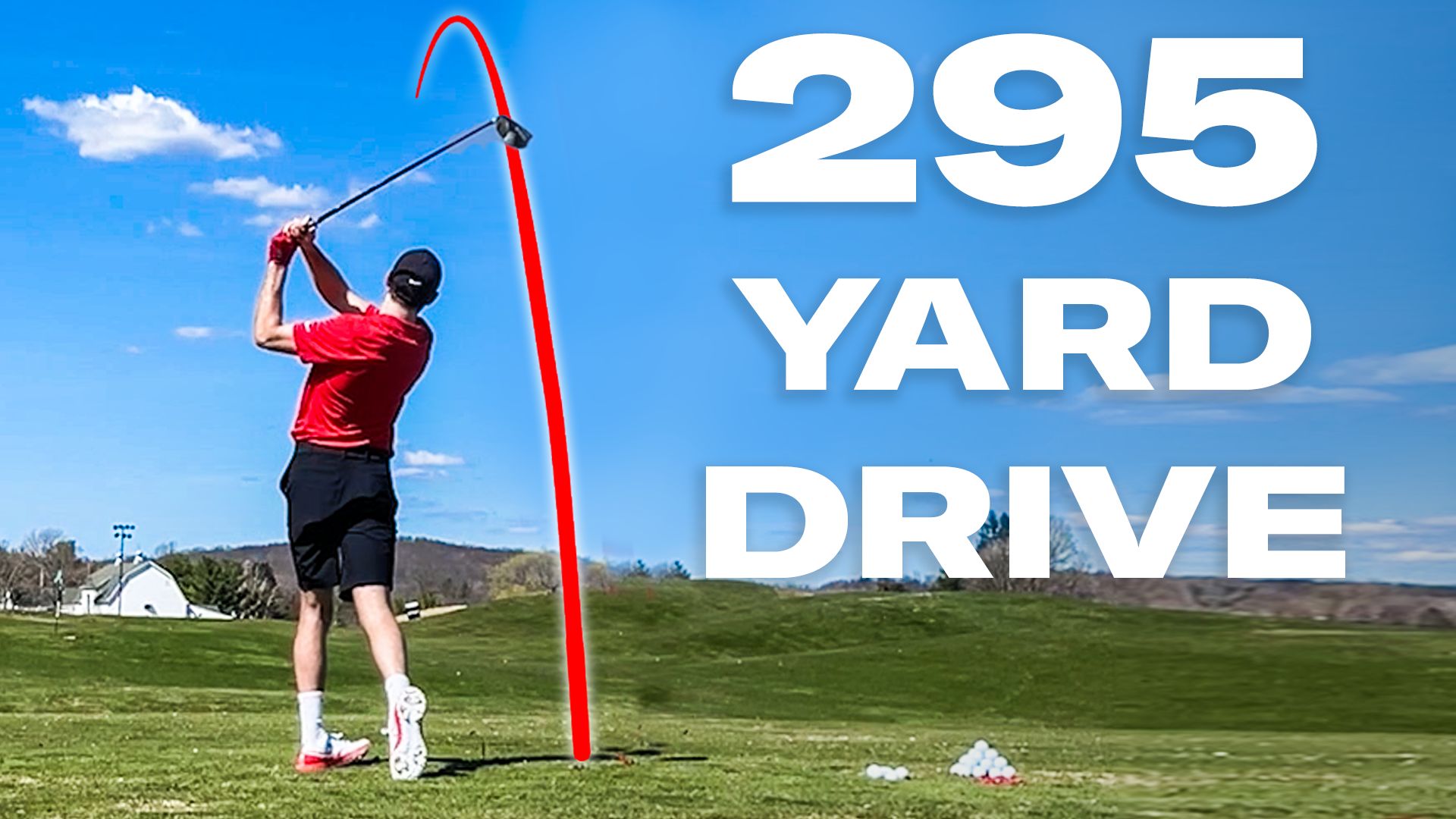Mastering the Greens: How Long to Get Good at Golf
It can take anywhere from three to five years to become good at golf. Mastering the game of golf requires more than just physically hitting the ball; it takes patience, practice, and dedication.
Often referred to as the “gentleman’s sport,” golf can be both a competitive and leisurely activity. Despite its reputation as a game for upper-class individuals, golf attracts a wide range of players, from beginners to professionals. However, becoming a skilled golfer takes time and effort, and it can be frustrating for beginners to see progress in the beginning stages.
In this article, we will explore the factors that contribute to how long it takes to get good at golf and provide tips for those looking to improve their game.

Credit: www.pinterest.com
Essential Skills Needed To Master Golf
Explanation Of Essential Skills
Golf is a game that requires a complex combination of skills to achieve success. Players need a good understanding of the game’s rules, a strategic mindset, mental focus, and physical abilities such as hand-eye coordination and strength. However, the essential skills that players need to master are the following:
- Swing: The golf swing is the foundation of a good golf game. It involves the coordination of the body, hands, and club, and should result in a smooth and consistent motion.
- Putting: Putting is often regarded as the most important skill in golf. A good putter can save strokes and make up for mistakes on the course.
- Chipping: Chipping is a finesse shot that requires a short backswing and a precise touch to get the ball onto the green and close to the hole.
- Iron play: Iron play is crucial for players who want to hit accurate shots onto the green. Good iron players have a consistent ball flight and trajectory and can control their distance and direction.
How To Develop These Skills Through Practice And Training
To get good at golf, practice, and training are essential. The following tips can help players develop the necessary skills to become proficient:
- Work on your swing: Practice your swing regularly, focusing on the correct technique, balance, and tempo. Use mirrors, video analysis, or a coach to perfect your moves.
- Practice putting: To become a good putter, practice regularly on a putting green. Focus on your grip, alignment, and pace control.
- Work on chipping: Chipping requires a lot of short-game practice to get a feel for the shot. Use a pitching wedge or a sand wedge to practice chipping onto a green or a target.
- Play regularly: Regular play is one of the best ways to improve at golf. Play with more experienced players, observe their technique, and learn from them.
- Get coaching: Consider getting professional coaching to hone your skills. A good coach can help highlight areas for improvement and provide personalized feedback.
Importance Of Proper Technique And Form
To excel at golf, proper technique and form are essential. The following tips can help players maintain good form:
- Work on flexibility and strength: Golf requires a lot of physical skill, including strength, power, and flexibility. Engage in exercises to develop these skills.
- Focus on posture: A good posture helps players maintain balance and a consistent swing. Stand tall with your spine straight and shoulders relaxed.
- Keep your eye on the ball: Focus on the ball to hit it accurately. Keep your head down and your eye on the ball until after impact.
- Control your grip: A good grip is crucial for a consistent and accurate swing. Experiment with different grips to identify what works best for you.
Mastering golf takes time and practice, but by focusing on these essential skills, players can improve their game and enjoy the sport more fully. Remember to practice correct form and technique, and seek advice and coaching when necessary, and most importantly, have fun and enjoy the game!
Factors Affecting Time To Mastery
Golf is a sport that takes time and dedication to master. There are several factors that can affect how quickly one can become proficient at golf. Here are some factors to consider:
- Age: Age is a significant factor in mastering golf. Younger players usually have more flexibility and adaptability, making it easier to learn proper golf techniques. However, age is not a barrier – many professional golfers started golfing at a later age.
- Fitness level: Being in good shape is essential for golfing. Golf requires a lot of walking, and players need endurance to maintain their energy levels throughout the game. Additionally, flexibility and strength are important for executing golf swings properly.
- Natural ability: Some people are naturally more skilled at golf than others. Some are born with the ability to develop proper technique quickly, while others may struggle to master the sport.
- Practice time: The more time a player dedicates to practice, the quicker they will improve. Golf requires a lot of repetition to master techniques, and consistent practice is essential.
Tips For Overcoming These Factors And Accelerating The Learning Process
While some factors may limit a player’s ability to learn golf quickly, there are ways to overcome them. Here are some tips:
- Get personalized instruction: Work with a golf instructor who can tailor their teaching approach to suit the player’s unique needs and learning style.
- Develop a fitness routine: Incorporate exercises that target the muscles used in golfing and help improve flexibility.
- Utilize technology: Video analysis tools and swing trackers can provide insight into a player’s strengths and weaknesses and help them improve their techniques.
- Set achievable goals: Break down long-term goals into smaller, achievable milestones to track progress and maintain motivation.
- Practice regularly: Consistent practice is essential to rapid improvement. Even small amounts of practice several times a week will yield better results than occasional, longer practice sessions.
Advice For Setting Realistic Goals And Developing A Plan For Improvement
Developing a plan for improvement requires setting realistic goals. Here are some tips to help players do so:
- Assess current abilities: Evaluate strengths and weaknesses to identify areas to focus on for improvement.
- Create specific goals: Goals should be realistic, specific, and measurable. For example, instead of setting a goal to “improve my game,” set a goal to “reduce my average number of strokes by two.”
- Break down goals: Break long-term goals into smaller milestones to monitor progress and maintain motivation.
- Plan practice sessions: Incorporate drills to improve target areas during practice sessions.
- Track progress: Keep track of progress to evaluate the effectiveness of the plan and identify areas for adjustment.
Strategies For Efficient Practice
How long does it take to get good at golf: strategies for efficient practice
Golf is a sport that requires patience, dedication, and skill. It is not uncommon for beginners to feel intimidated by the difficulty of it and wonder how long it takes to get good at golf. The answer is that it depends on the individual and how much they practice.
However, there are ways that you can make the most of your practice time to improve faster. Here are some tips on how to develop a practice routine that complements your individual needs and strengths and the role of technology and tools in improving performance.
Tips On How To Make The Most Of Practice Time
To get better at golf, practicing on a consistent basis is crucial. However, just hitting balls on the range for hours on end may not lead to significant improvement. Here are some tips on how to make the most of practice time:
- Focus on your weaknesses: Spend more time practicing the areas where you struggle the most. It’s natural to want to practice what you’re good at, but if you want to improve your overall game, focusing on your weaknesses is key.
- Set specific goals: Having specific goals for each practice session can help keep you motivated and focused. It could be as simple as hitting a certain number of fairways or sinking a certain number of putts.
- Practice with a purpose: It’s not just about hitting as many balls as possible. Each shot should have a specific purpose, whether it’s working on a swing change or honing in on your short game.
- Take breaks: Don’t burn yourself out by practicing for too long without taking breaks. Taking breaks can help you stay focused and prevent injury.
How To Develop A Practice Routine That Complements Individual Needs And Strengths
Everyone’s golf game is unique, and a practice routine should be tailored to complement individual needs and strengths. Here are some key points to keep in mind when developing a practice routine:
- Assess your game: Start by assessing your strengths and weaknesses. This will help you determine where to focus your practice time.
- Create a plan: Once you’ve identified areas to work on, create a plan that includes specific goals and drills to help you improve. It’s important to set realistic goals, so you don’t get discouraged.
- Incorporate variety: Don’t fall into the trap of doing the same thing every time you practice. Incorporate drills and exercises that challenge you and keep things interesting.
- Seek professional help: Consider seeking professional help from a golf instructor or coach. They can help identify areas for improvement and provide personalized guidance.
The Role Of Technology And Tools In Improving Performance
Technology and tools have come a long way in recent years and can be valuable assets in improving your golf game. Here’s how technology and tools can help:
- Launch monitors: Launch monitors can provide valuable data, such as swing speed and ball spin, which can help you identify areas for improvement.
- Video analysis: Video analysis can be a valuable tool for analyzing your swing. It allows you to see what you’re doing right and what needs improvement.
- Training aids: Training aids can be helpful for working on specific areas of your game. For example, a putting alignment aid can help improve your aim and accuracy.
- Golf apps: There are a number of golf apps available that can help with everything from tracking your shots to providing tips and drills for improvement.
Getting good at golf takes time and practice, but with the right strategy and tools, you can improve faster. By making the most of your practice time, developing a routine that complements your individual needs and strengths, and utilizing technology and tools, you can take your golf game to the next level.
Maintaining And Enhancing Skills
Golf is a game that requires patience, persistence, and practice. As a beginner or even an experienced player, you may wonder how long it takes to get good at golf. With consistent effort, you can see marked improvements in your skills and abilities.
We will discuss how you can maintain and enhance your skills over time.
The Importance Of Consistency In Practice And Play
Consistent practice and play are crucial if you want to improve your golf skills. It is not enough to play once a month and expect to see significant improvements. Here are some tips to help you maintain consistency in your golf practice and play:
- Set a schedule: Create a golf schedule that fits your daily routine, so you can practice regularly and make it a habit.
- Practice in different conditions: Practice in various weather conditions, terrain, and golf courses to improve your adaptability and versatility.
- Start small: Start with short practice sessions and gradually increase the time as you improve your skills and stamina.
How To Evaluate Progress And Identify Areas For Improvement
Evaluating progress is essential to assess your golf skills and determine areas that need improvement. Here are some ways to evaluate your progress and identify areas for improvement:
- Keep a record: Record your scores, shots, and swings during practice and play to track your progress over time. Keep a logbook to track your statistical progress and understand your strengths and weaknesses.
- Analyze your game: Analyze your performance with the help of golf pros, mentors, or coaches to identify areas that need improvement.
- Set goals: Set realistic, measurable, and achievable goals. Sharpen your focus on specific skills and track your progress regularly.
Tips For Continuing To Develop And Enhance Skills Over Time
Golf is a lifelong journey; you can continue to enhance your skills and enjoy the game over time. Here are some ways to continue to develop and enhance your skills:
- Keep learning: Attend golf clinics, workshops, and seminars to learn new techniques and skills. Keep up to date with the latest equipment and technology to improve your knowledge and expertise.
- Play with different golfers: Play with different golfers, regardless of their skill level, to challenge yourself and learn new strategies.
- Maintain fitness: Golf requires physical and mental fitness. Stay in shape by doing regular exercises and following a healthy diet.
Improving your golf skills requires consistent effort, patience, and a willingness to learn. By following the tips mentioned above, you can maintain and enhance your skills over time and enjoy the beautiful game of golf.
Frequently Asked Questions For How Long Does It Take To Get Good At Golf
How Long Does It Take To Get Good At Golf?
It takes anywhere from six months to five years, depending on frequency and practice.
Can Anyone Learn To Play Golf To A High Standard?
Although it takes dedication and practice, anyone can learn to play golf to a high standard.
What Are The Best Ways To Improve My Golf Swing?
To improve your golf swing, practice regularly, focus on technique, get feedback, and watch instructional videos.
Conclusion
Ultimately, there’s no clear-cut answer to the question of how long it takes to get good at golf. Depending on various factors, it could take a few months or a few years to start seeing significant improvement in the course.
What’s important is to remember that golf is a game that requires patience, practice, and persistence. There will be days when you feel like you’re making no progress, but it’s all part of the learning process. Keep at it, focus on the fundamentals, and don’t be afraid to ask for help or take lessons.
Additionally, take advantage of the technology and training aids available to golfers today to help accelerate your progress. As you continue to improve, don’t forget to enjoy the journey and appreciate the beauty of the game. With dedication and hard work, you’ll be well on your way to mastering this challenging and rewarding sport.



